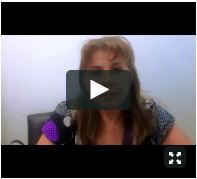Do you know someone that recently passed away? Do you know that after your death, the distribution of retirement accounts, life insurance policies, annuities, and bank and investments accounts are guided by beneficiary designations. If those designations are outdated, unspecific, or wrong, your assets may not be distributed the way you would like.
Hello, this is Noel Dalmacio, your ultimate CPA at lowermytaxnow.
Here are three items to consider:
Be specific and stay current. When you name a beneficiary, your assets can pass directly to that person or entity without going through a legal process called probate. So make sure you update the designations for life events such as divorce, remarriage, births, deaths, job changes, and retirement account conversions. Likewise, keep your beneficiary designation forms in a safe location, and maintain current copies with your financial institution, attorney, or advisor.
Think about unexpected outcomes. You have to be alert for the effect of taxes. For example, if the money in your accounts is distributed directly to your heirs, they may be stuck with a large unexpected tax bill. If you are wealthy, estate tax may also play a role. In 2016, the estate tax exclusion is $5.45 million and the top estate tax rate is 40%. Another concern: If one of your designated beneficiaries is disabled, government benefits may be reduced or eliminated by the transfer of assets. You may want to consult an attorney to establish a special needs trust to ensure your loved one is not adversely affected.
Name contingent beneficiaries. If your primary beneficiary dies, having a backup, or contingent, selection will ensure that your assets are properly distributed. In some cases, a primary beneficiary may choose to disclaim, or waive, the right to the assets. In that case, contingent beneficiaries can step up to primary position.
Beneficiary designations are an important part of estate planning and the items we have discussed will ensure that your wishes and intentions will be followed.
If you like to learn more, click the link lowermytaxnow.com and sign-in to receive my weekly blog.
Until then, this is Noel Dalmacio, your ultimate CPA at lowermytaxnow.com




